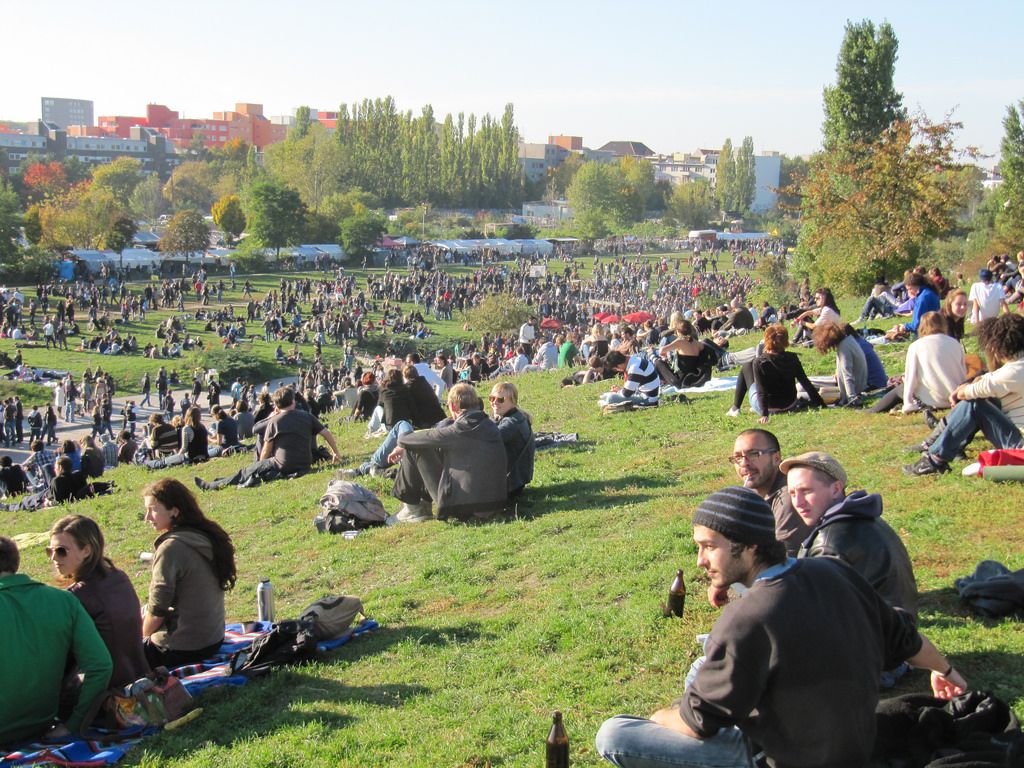One of the mostBerlin’s most frequented nightclubs every weekend is undoubtedly the Mauerpark. On weekdays you’ll also find young people playing sports or sitting on the grass with friends, but sunday is the ideal day to visit the park..
With its flea market stalls, food for all tastes and the famous karaoke, this 11,000 m² green space delights every tourist in the German capital every Sunday. The Mauerpark has become one of the most important must-see places to visit in Berlin during the weekend.
In the Mauerpark, everyone finds their own corner and that explains the unbeatable opinions of its visitors. We discover the activities in one of Berlin’s most popular parks.

“Mauerpark” by Loozrboy licensed under CC BY-SA 2.0
What to buy at the Mauerpark flea market
The Mauerpark flea market (“flohmarkt”) has been organized since 2004 and is already a classic in any Berlin guidebook. It rises every Sunday and reaches figures as high as 40,000 visitors eager to get their hands on some bargains and to discover Berlin art photos, antiques, second-hand or alternative design clothing, vinyl records or even furniture and home decor..
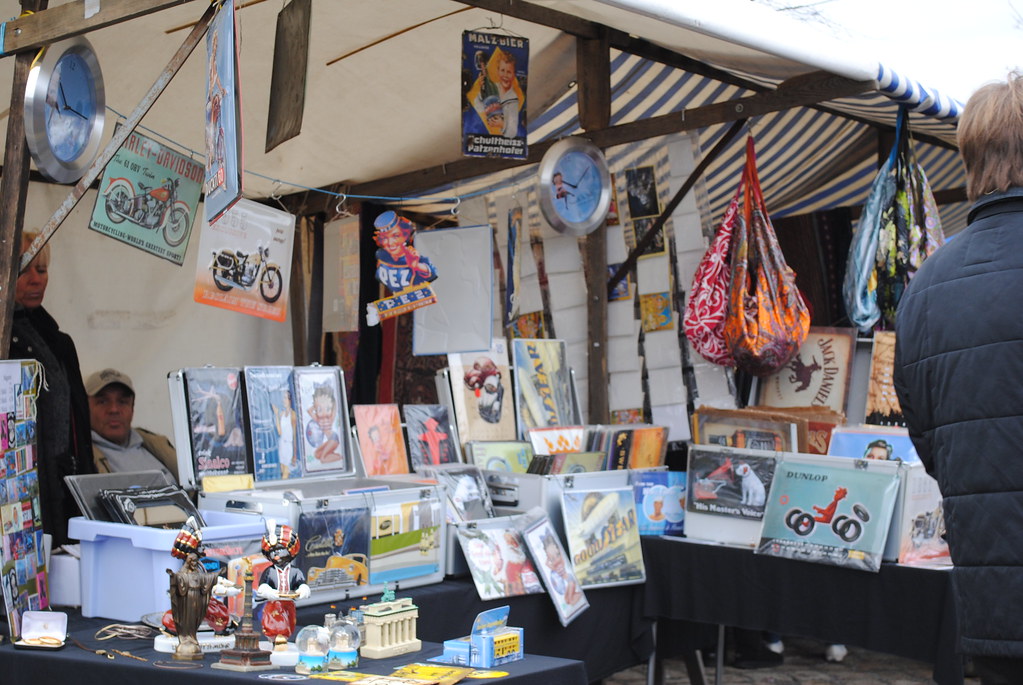
Among the market stalls are mixed both individuals and businesses and it is common to see stalls of amateurs alongside those of professional vendors, artists and craftsmen. It is also not uncommon to find charitable organizations, especially with food stalls, offering products in exchange for a donation (“spende”) at will.
Selling at this famous flea market is very popular and, for 37 €, a particular can set up his stand to offer anything from second-hand objects to handicrafts or design works. The positions are so diverse that in them you will be able to buy practically everything for an affordable price..
When the flea market opens
The Mauerpark stalls are open every Sunday from 9 am to 6 pm.
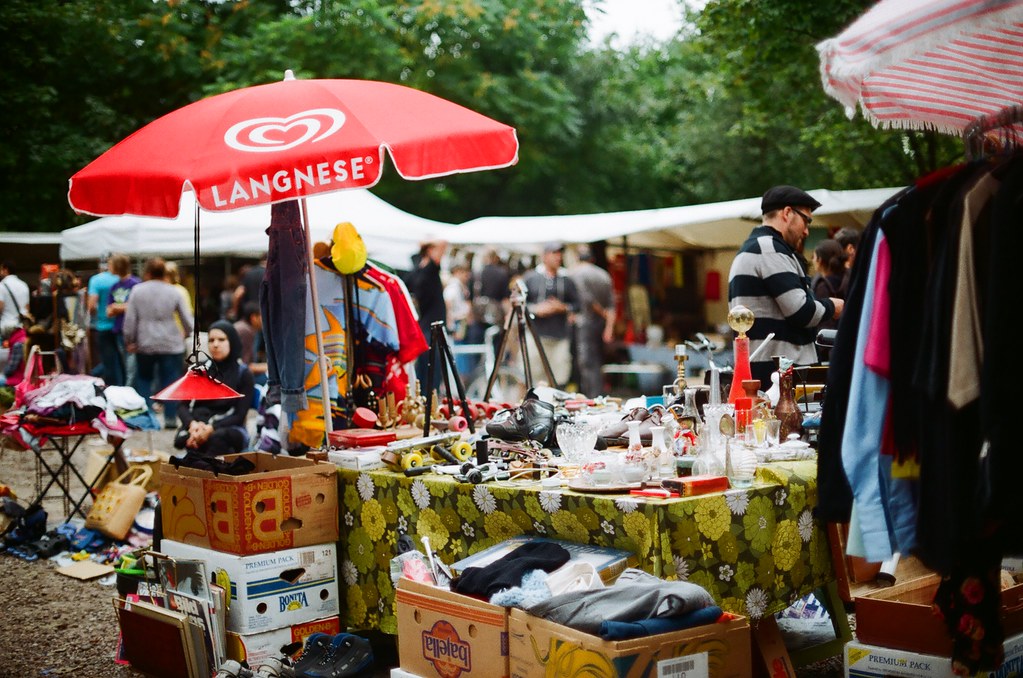
Open-air karaoke and live entertainment at Mauerpark
Would you like to go to a concert this Sunday, without paying admission? In Mauerpark you have music for all tastes.
Joe Hatchiban, founder of the legendary Bearpit Karaoke in Mauerpark, started walking his portable speakers around Berlin in 2009 to encourage spontaneous sing-alongs. Soon after, it was established in Mauerpark and congregates every Sunday, weather permitting, to more than a thousand enthusiastic spectators. Anyone can participate with more or less talent, but the final applause always goes to Joe, who reserves the last song. If rain is forecast, the organization communicates through the
Bearpit Karaoke Facebook page
if it is finally convened on Sunday.
If you prefer to listen to musicians in percussion groups, live bands or singer-songwriters, Mauerpark is the place to be. Throughout the park there are also other family shows for all ages, such as jugglers, dancers and magicians. A visit to the Mauerpark is, without a doubt, the best plan in Berlin during the weekend, especially after a
free tour
of Berlin in Spanish with a free craft beer.

Bearpit Karaoke
When: Sundays from 3 pm in good weather, fills up from 2 pm.
Where: Mauerpark Amphitheater
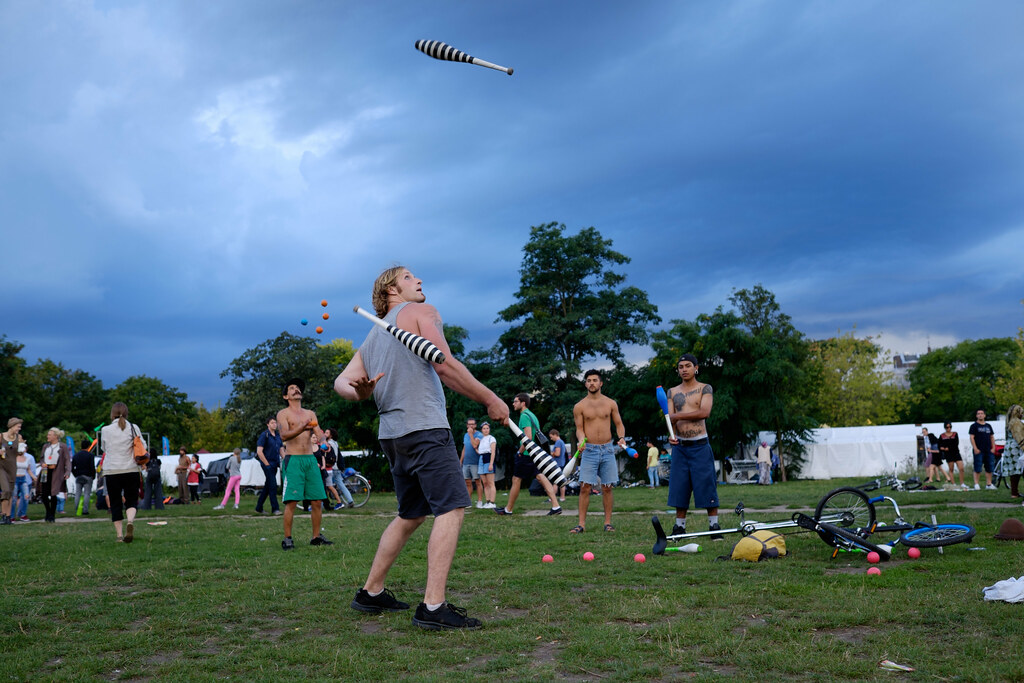
History of Mauerpark: a park divided by the Berlin Wall
Since the beginning of the 19th century, the site of today’s Mauerpark has been used for a variety of purposes, from military training grounds to a now disused freight railway station and even as a soccer field for Berlin’s Hertha BSC.
In 1952, part of its grounds was converted into a sports stadium under the name Friedrich-Ludwig-Jahn-Sportpark, in commemoration of the German “father of gymnastics”. When the intercity border is closed and the erection of the Berlin Wall in 1961In the early nineteenth century, a part of the current park, which divided the districts of Wedding to the west (belonging to the French sector) and Prenzlauer Berg to the east (Soviet sector), was converted into a guard post and the land was crossed by the wall.
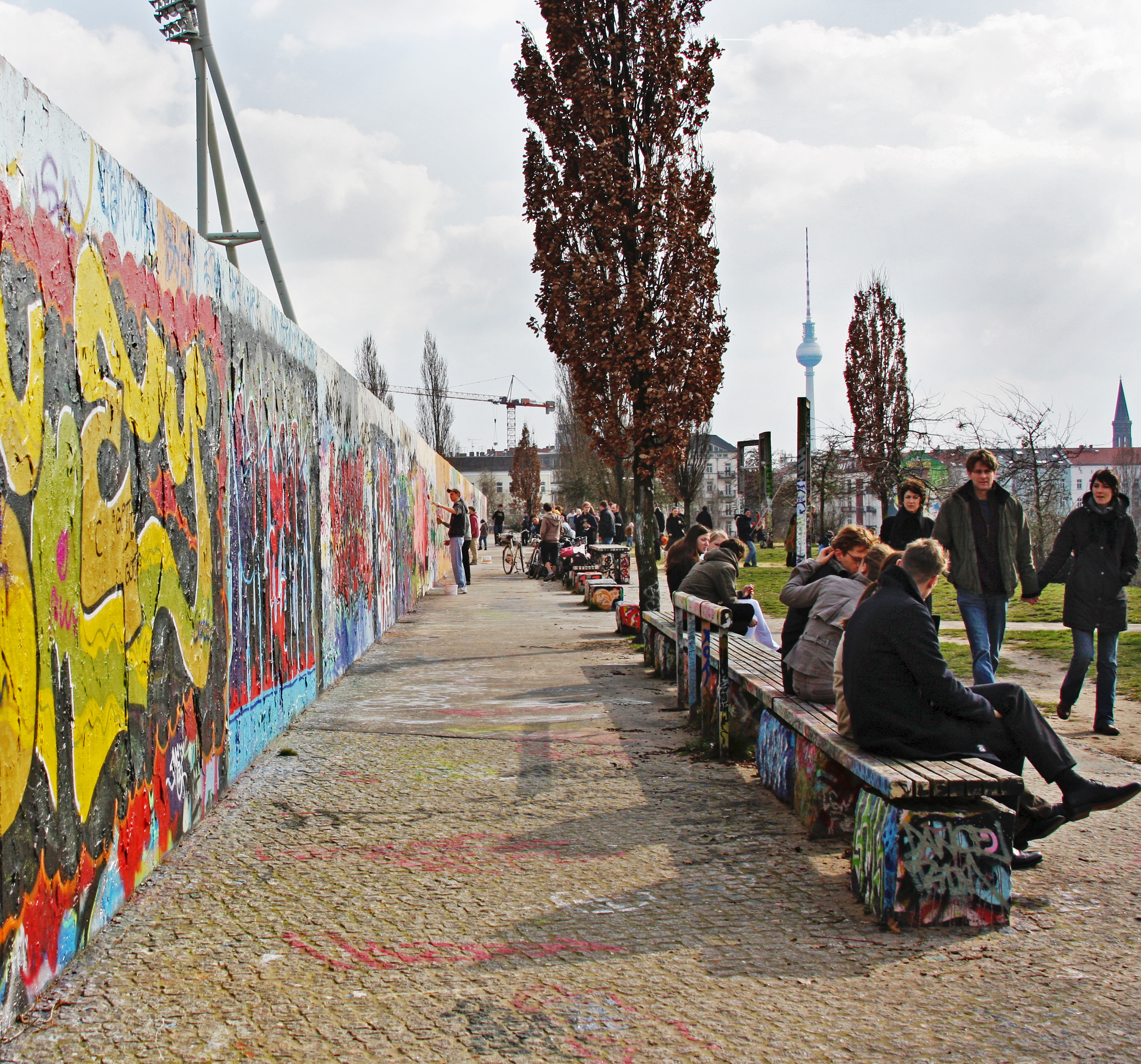
After the fall of the Wall and the reunification of the two Germanies, the site was renovated and opened on November 9, 1994, five years after the fall of the Wall, as Mauerpark (“Wall Park”). Since then it has been expanded several times.
On a hill next to the Friedrich-Ludwig-Jahn-Sportpark sports complex , remnants of the wall are preserved in a 300 m long section of the inner wall that today serves as a canvas for Berlin graffiti artists. This monument reflects the essence of Berlin, as only the union and the opening of borders have given rise to what the Mauerpark is today: a large green area where thousands of people from all over the world come to visit and which has become one of Berlin’s major tourist attractions.
Every Wednesday of the year, you can delve into the history of the wall with the
free guide to the Berlin Wall
The Berlin Wall Guide, a visit that will help you understand what it was like to live in a divided country marked by the major events of the Cold War.

Food at Mauerpark: an explosion of flavors
The street food and drink stalls during the Mauerpark flea market are a guarantee of delicious food at good prices, and their variety escapes the imagination. You will find dishes of all nationalities and exotic creations.
Being a popular corner, you will probably have to wait in line at many of the food stalls.
How to get to Mauerpark
Located in the Prenzlauer Berg district, the closest subway stop to Mauerpark is Eberswalder Straße on the U2 line.
The southern entrance to the park is located at the intersection of Eberswalder Straße and Bernauer Straße and is just 500 meters from the Eberswalder Straße subway stop.
The park can also be accessed by streetcar through the stops Friedrich-Ludwig-Jahn-Sportpark (lines M2 and M10) or Wolliner Str. (tramway M10 or bus 247). The Bernauer Straße subway stop (line U8) is 600 meters from the park.
Where Mauerpark is located: Gleimstraße 55, 10437 Berlin
Places to visit near Mauerpark
After browsing the market stalls, listening to live music or, why not, enjoying a picnic under the Berlin sun, you will be interested in these recommendations for cultural activities around the Mauerpark.
Prater Garten
Open-air beer garden (“biergarten”), the oldest beer garden in Berlin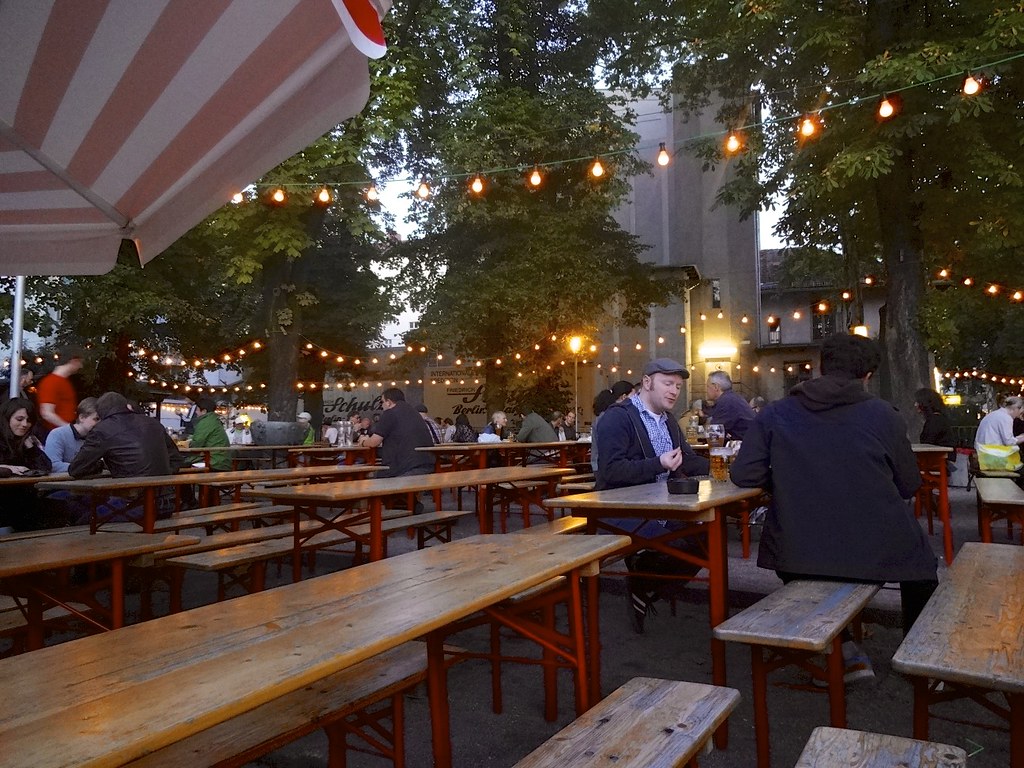
Museum in der Kulturbrauerei
Permanent exhibition on ideology and reality in the German Democratic Republic.
Soda Club Berlin
Discotheque with different genre rooms and regular activities, often with Latin music.

